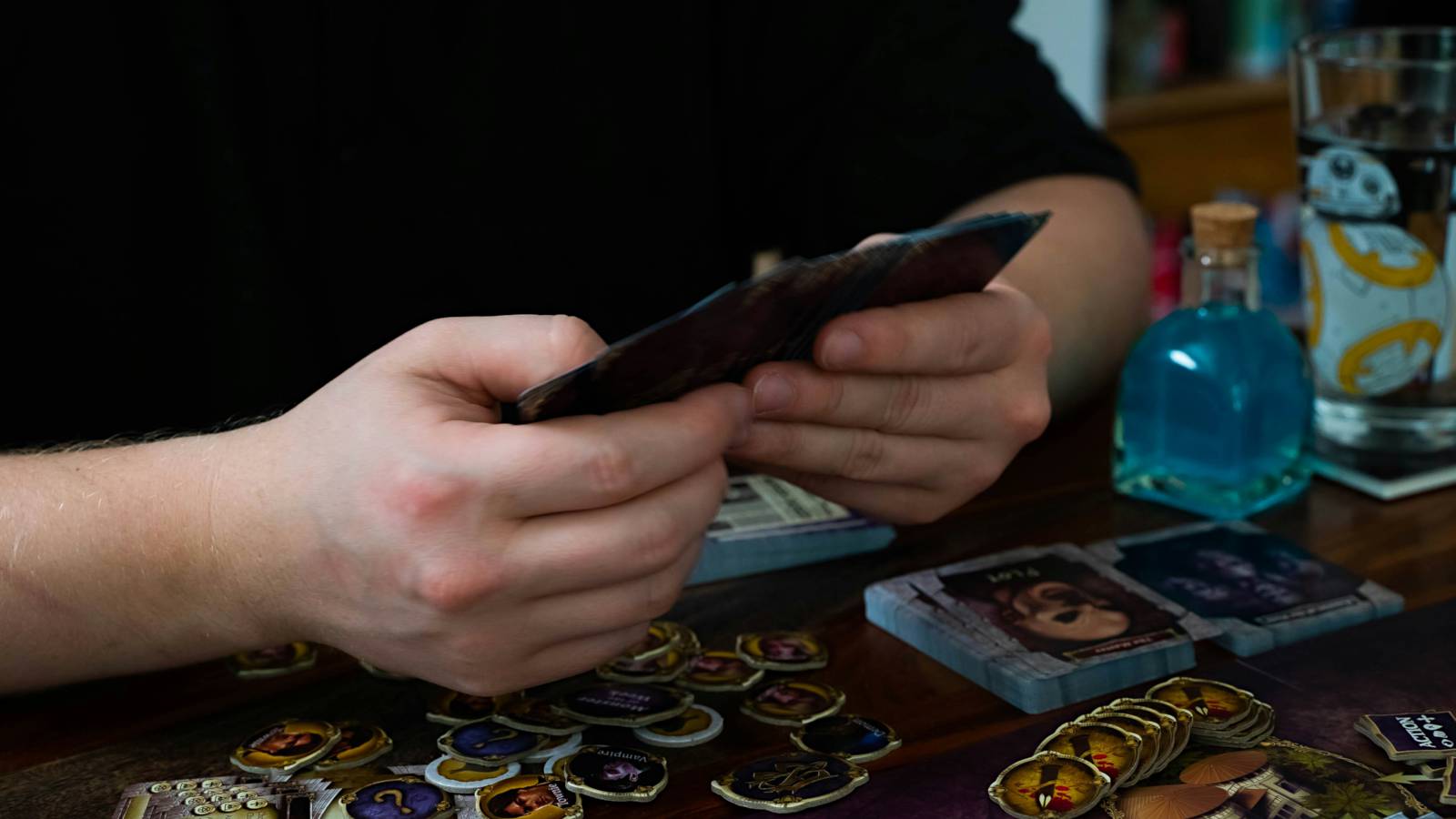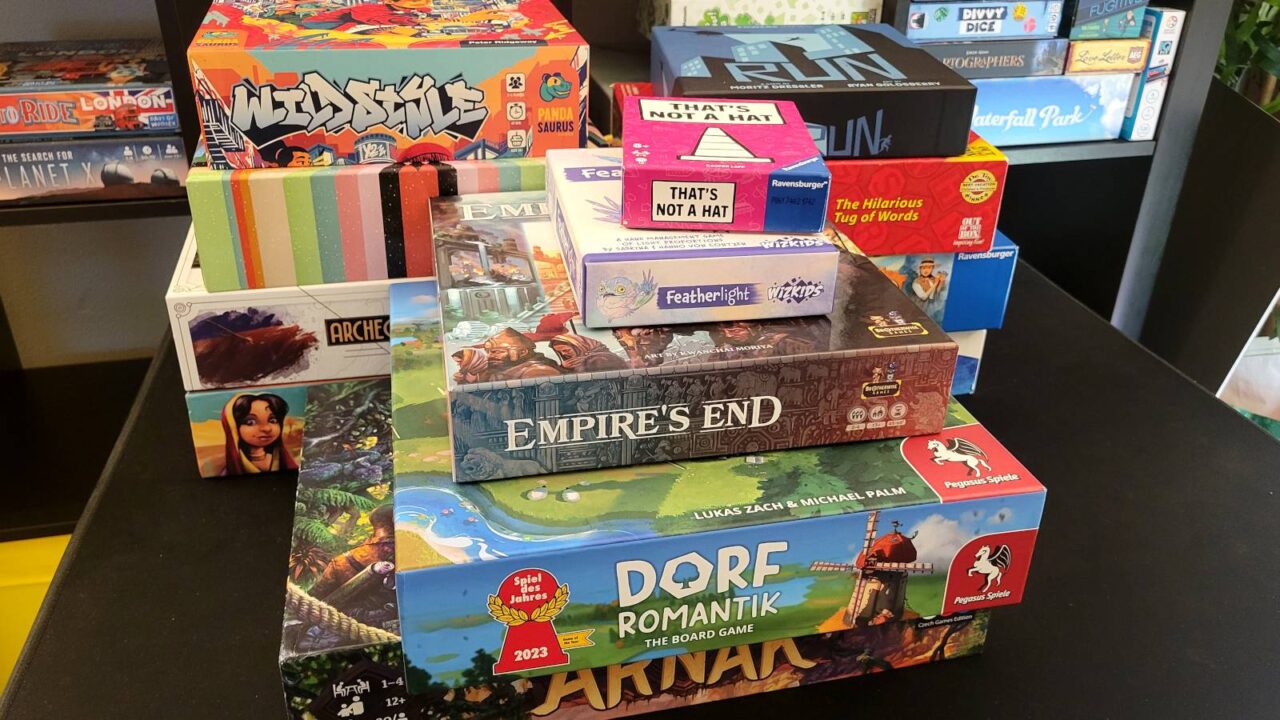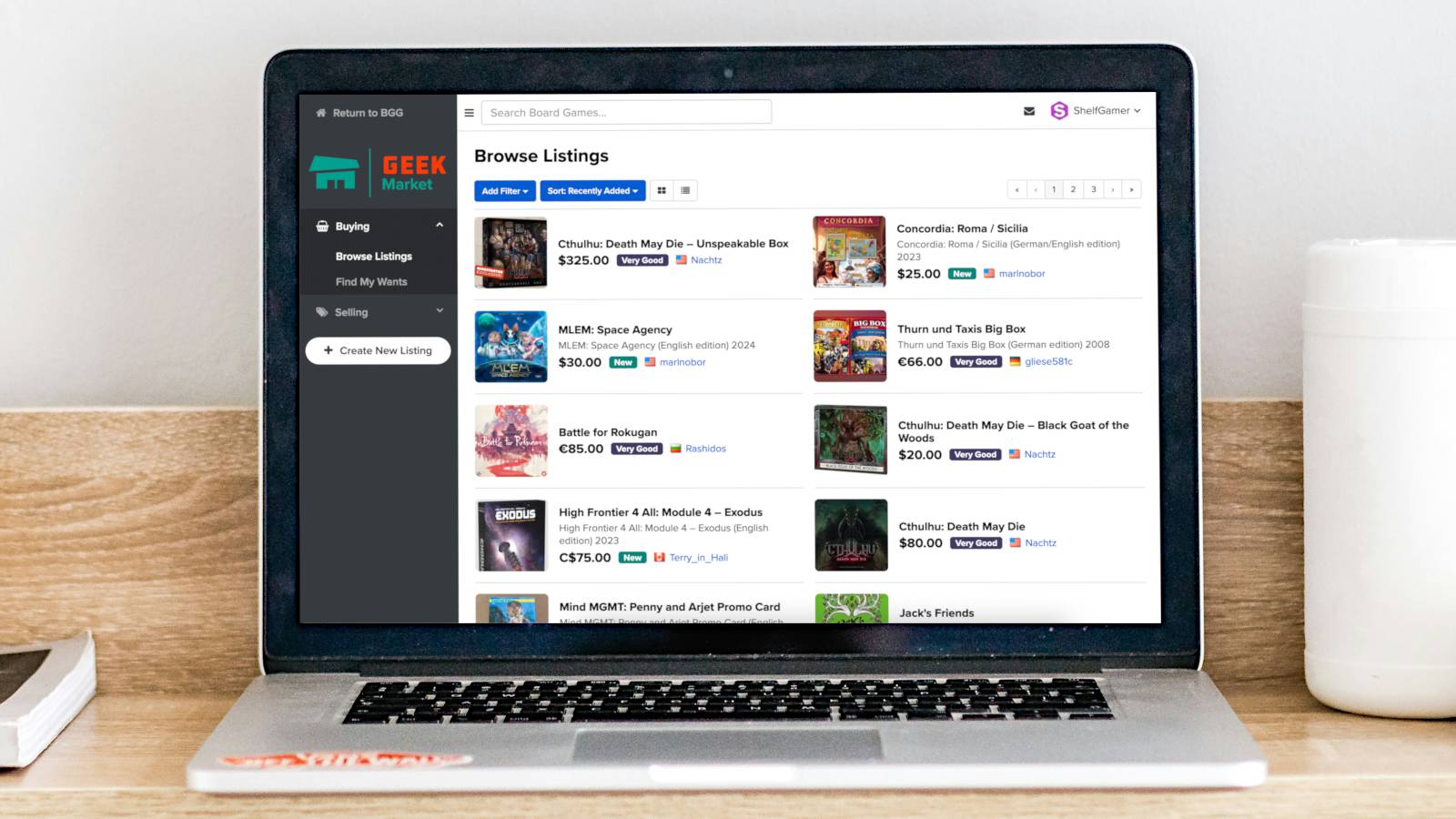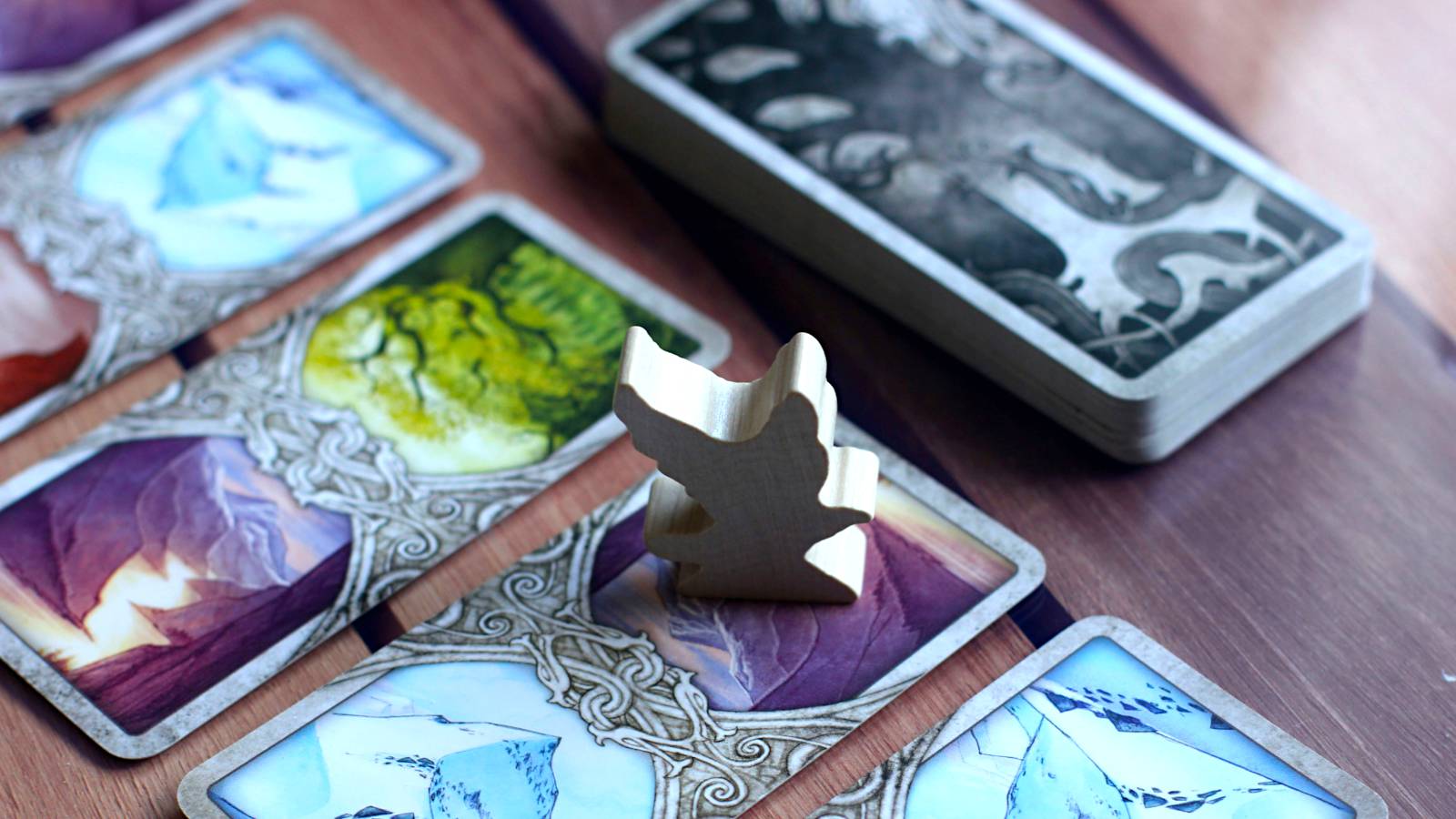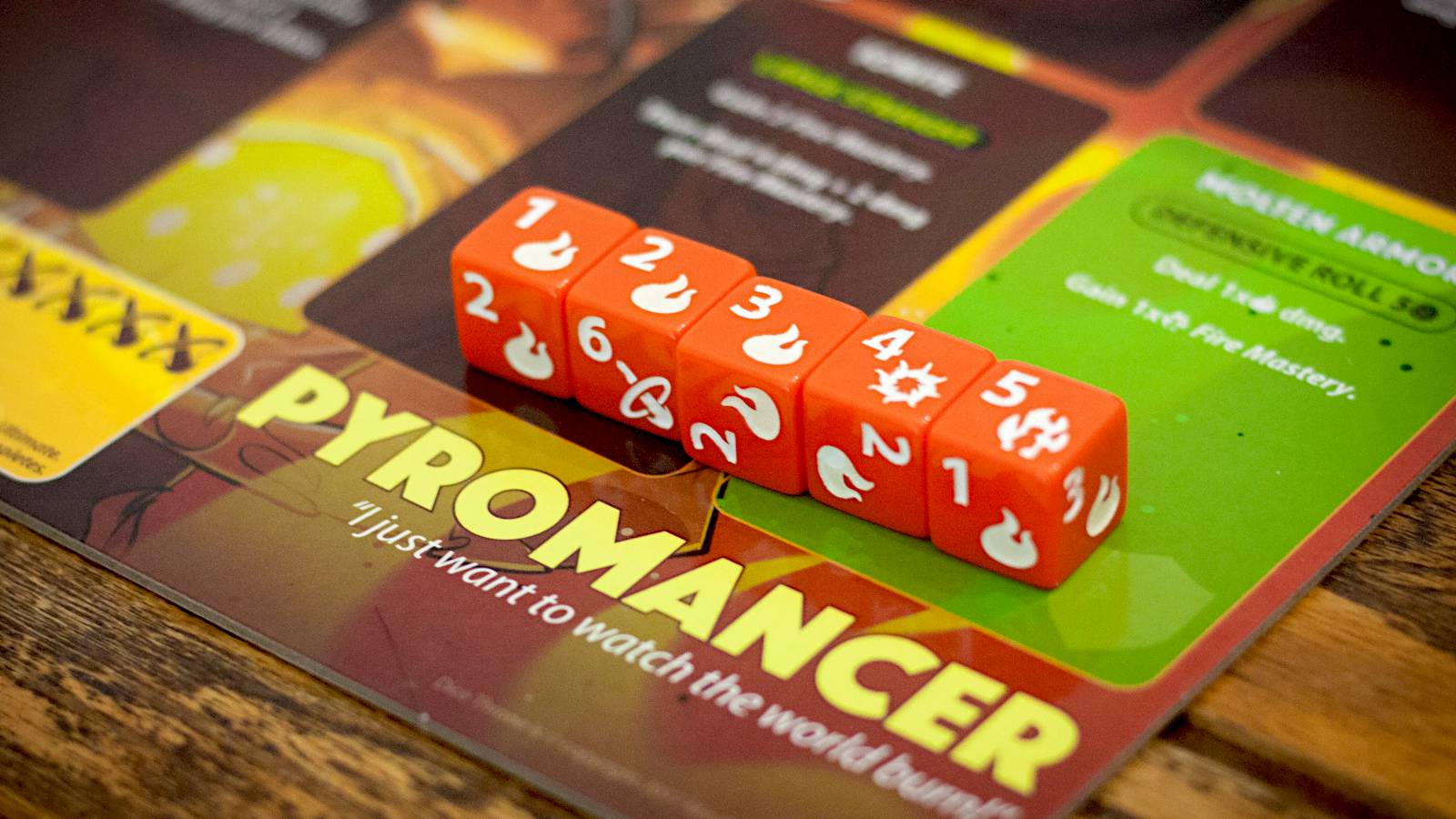Years ago, back when I was younger and not so open-minded, I disparaged the idea of playing board games by myself. It seemed like a lonely affair that went against the spirit of board gaming's social core.
I fully regret having that attitude.
As it turns out, solo board gaming is now one of my favorite ways to engage with the hobby. I'd hate for it to be the only way I could enjoy board gaming, but it's definitely an important option that I'm grateful to have.
If you've never tried board gaming by yourself, or if you look down on the idea of it, I highly recommend giving it a shot! Here are several reasons why.
1. Solo-Only Board Games
Since 2018, the idea of solo-only board games has really taken off. These are games that literally only support one player! (Well, some of them might have variants for 2p coop, but they usually feel tacked-on.)
If you don't play solo, then you're missing out on a lot of interesting games.
High-profile examples include Final Girl, Coffee Roaster, Warp's Edge, and Under Falling Skies. On the lighter side, you have games like Orchard, Grove, Sprawlopolis, and ROVE. Heavier options include Legacy of Yu, Hoplomachus: Victorum, and Mr. President: The American Presidency, 2001-2020.
Maybe you'll find that these don't engage you in a meaningful way. Then again, you might fall in love with them. You can't know until you try!
2. Play to Your Own Schedule
If you have a reliable game group that's able and willing to play as often as your heart desires, count yourself lucky! You can probably skip this point and jump right down to the next one.
But if you're like me and you struggle to play as often as you like, or if you don't have a game group and struggle to find one, or if your group is uncommitted and/or difficult to schedule around, then solo board gaming is a boon!
Did everyone flake this month? You can still play on your own! No one is as enthusiastic about board gaming every day as you are? Go ahead and play on your own! Have an hour to yourself every night? Yup, play on your own!
Whatever your personal schedule is like, and no matter how difficult it is to match up with other schedules, solo games are always an option.
3. Play at Your Own Pace
Spend any amount of time in online board gaming communities and you're sure to hear people complain about slow, distracted, or try-hard gamers. You might be a slow player yourself... or maybe the opposite.
Truth is, not everyone can play at the same pace. If your pace doesn't match your group, there's bound to be frustration—and it goes both ways.
Do you like to analyze all possible contingencies, calculate all the different odds, eliminate all potential options one by one, and make sure you leave no stone unturned before you end your turn? Solo gaming lets you play as comprehensively as you like without feeling pressured.
Do you play by gut and make your decisions based on intuition and feel? Hate having to sit there and wait for 10-minute-long turns when you're typically fast and able to knock out a turn in under a minute? Solo gaming lets you play as quickly as you like and wrap up in half the time.
4. Play Your Untableable Games
We all have games in our collections that we love but aren't as loved by our groups. Those games usually end up collecting dust on shelves as we hope for the days when we might be able to finally play them.
Why wait when you can play them now? On your own.
You'd be surprised how many modern board games have built-in solo modes. In particular, roll-and-writes and tableau builders lend themselves to satisfying solo modes. But lots of card games, worker placements, dice chuckers, and others come with solo modes worth playing.
And for the games that don't, you might be able to find some interesting solo variants in their respective BGG forums.
Of course, not every game is conducive to solo play. Trading and negotiation games, social deduction games, two-player abstract games, and party games just wouldn't make sense as solo experiences. But for almost every other type of game, the possibilities are there.
5. Experiment With Weird Strategies
If your interest is in board gaming as a competitive hobby, then you probably think a lot about strategies and metas. Moreover, your group is probably one that pushes "playing optimally" as the right way to play board games.
The problem is, in order to find the best strategies (and counter strategies), you have to be willing to try weird things.
But some groups frown on this. Deviating from established strategies and "the proper way to play" might cause offense, as if you're "playing suboptimally" and thus ruining the game for everyone.
On the other hand, maybe you don't want to risk an entire session trying out an unorthodox strategy only for it to blow up in your face in front of everyone. Who wants to throw two hours down the drain for an experimental play?
You can avoid all of that by experimenting on your own.
You can even play as two or three different players to test multiple strategies at once. If your experiments are clearly falling short of expectations, you can end the game and/or start over without ruining the game for anyone else.
6. Compete Against Yourself
If your group isn't as competitive as you are, you can always scratch that itch by competing against yourself. Most solo games and solo modes have various benchmarks that you can shoot for as you progress and improve at the game.
For example, beat-your-high-score games feel like arcade-style video games where the goal is to perform better than you did last time. In games like Coffee Roaster, Super-Skill Pinball, and FUSE, a numerical score acts as a grade for how well you did. There's always a new record to chase.
Another type of solo game involves an automa, which basically simulates acts as a virtual opponent and often has varying difficulty levels. Beating an insane-level automa can be just as fulfilling as playing against real people. Example games include Fantastic Factories, Project L, Wingspan, and Viticulture.
And then you have cooperative board games that involve players trying to overcome the game's systems. These games are usually easy to play solo, and you can optionally play with multiple hands to simulate multiple players. Iconic examples include Spirit Island, Forbidden Desert, and Astro Knights.
7. Learn Before You Teach
Few things are worse than fumbling the teach. Not only does it delay the start of the game, and not only can it hurt your confidence as a board game teacher, but it can permanently taint the group's enjoyment of the game.
What's the best way to prevent that? By acquainting yourself with the ins and outs of the game through a few dry runs on your own.
Obviously, I don't mean simple games with small rulebooks. But when a game starts to have more rules, more components, more phases, more nuances in actions and scoring? It really helps to play it through.
And as much as I find it helpful to watch "how to play" videos on YouTube, you won't really internalize every detail until you experience it hands-on. So, familiarize yourself with some solo play!
8. Avoid Nasty Personalities
As with any hobby, board gaming has its share of negative stereotypes.
Rude players who are aggressively mean. Condescending teachers who have no patience. Awkward people who have no sense of social norms or respect for boundaries. Smelly gamers who neglect personal hygiene. Elitist snobs who look down on you for liking this or that game. Sore losers who throw a wet blanket on game night with their sour attitudes.
Not all board gamers, of course! But these stereotypes exist for a reason. The more you play in large public gatherings—meetups, conventions, events—the more likely you are to run into these sorts.
And you know what? It can be stressful to put yourself through that.
When you play solo, you don't have to worry about any of that. You can enjoy the fun of board games from the comfort of your own home, without the potential conflicts that can come from social activity.
9. Invent Your Own Solo Variants
Do you like the idea of designing board games? Coming up with your own house rules is one way to exercise that skill, but coming up with your own solo variant is an even greater challenge worth attempting.
Nothing will stretch your creativity further than being forced to work within the confines of a particular game's components. If you can manage to retain the game's spirit with your solo mode, you should be proud of yourself.
Many board gamers have invented unofficial solo variants for numerous games, and lots of these variants have been shared in communities like BGG and Reddit. If you come up with a great solo variant, consider sharing it!
How Do You Feel About Solo Board Gaming?
If you're an avid solo board gamer like me, tell me about your favorite solo games and why you love solo board gaming.
If you've tried solo board gaming but decided it wasn't for you, tell me about what you don't like and why you find it lacking.
If you've never tried solo board gaming but you're on the fence, tell me about the hang-ups that are keeping you from giving it a go. If you need some direction on how/where to start, let me know and I'll help you out.
Go on, hit me with a comment down below!


